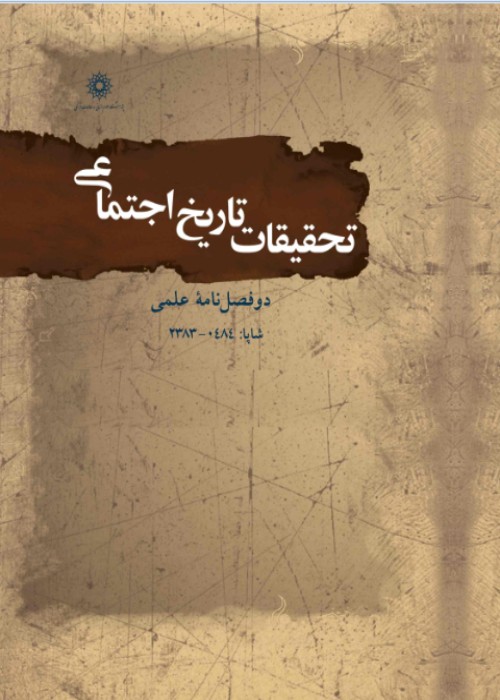Opposition to Mismanagement in the Qajar Iran: Uprising in Astarâbâd (1310 AH/1892 AD)
The mismanagement of government administrative organizations in the Qajar Iran and its consequences is not an unspoken issue. The record of the central government to eliminate this shortcoming indicates its failure. On the other hand, this inefficiency had a heavy cost for the people. Thus, getting rid of the consequences was a difficulty that the people themselves had to overcome. Social reaction to the mismanagement in the Qajar period is the problem that the present work studies in the case of public opposition of the people of Astarâbâd, a province on the south eastern coast of the Caspian Sea, to the will of the central government. Explain that, shortly after the abolition of the tobacco concession (January 1892/Jumadi al-Awal 1309 AH), in August 1892/Muharram 1310 AH Astarâbâd became the scene of mass opposition against drinking alcohol and then for several months against the governor of the province. So far, the occurrence of these happenings and their results have been neglected. The present article is a historical-analytical research, based on archival materials, that deals with the role of mismanagement (independent variable) in the occurrence of the popular reaction in Astarâbâd (dependent variable). Examining the social forces active in this political action and also its result are other goals of the present work. The findings of the study show that mass opposition in Astarâbad first caused by extreme frustration and deprivation of the people and then led to their rational-calculation of opposition to the government-appointed ruler to improve the situation in the province. Although the insurgency initiated by the lower classes in order to combat the cholera outbreak, the secondary stage - the rejection of the governor - welcomed by other urban classes and local military commanders who demanded improvement in the multifaceted consequences of chronic mismanagement in the province. Despite the religious motive as well as the participation of different classes and groups, the resistance in Astarâbâd had all the characteristics of a "rebellion" and lacked participation and the support of a political organization. In spite of success in opposing the will of the central government, the rebellion due to its nature- lack of both public political awareness and political organization- failed to bring about desirable and lasting result for the province and the people of Astarâbâd as well.
The Qajars , Mismanagement , Rebellion , Astarâ , bâ , d , Russia
- حق عضویت دریافتی صرف حمایت از نشریات عضو و نگهداری، تکمیل و توسعه مگیران میشود.
- پرداخت حق اشتراک و دانلود مقالات اجازه بازنشر آن در سایر رسانههای چاپی و دیجیتال را به کاربر نمیدهد.



